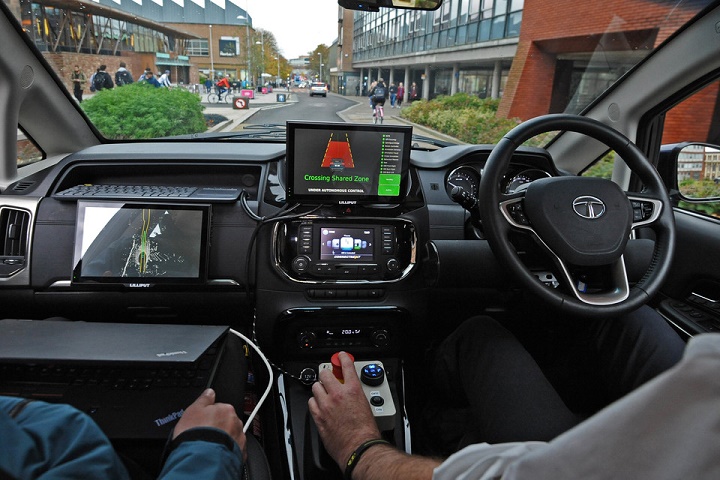
Image: DfT
Human drivers should not be legally accountable for road safety when behind the wheel of an autonomous car, a new report has concluded.
The report, published by the Law Commission of England and Wales and the Scottish Law Commission, makes recommendations for the safe and responsible introduction of self-driving vehicles.
Many driver assistance features are currently available to help a human driver. The report anticipates that, in future, these features will develop to a point where an automated vehicle will be able to drive itself for at least part of a journey, without a human paying attention to the road.
For example, a car may be able to drive itself on a motorway, or a shuttle bus may be able to navigate a particular route.
The report calls for a new Automated Vehicles Act, to regulate vehicles that can drive themselves. This would draw a clear distinction between features which just assist drivers, such as adaptive cruise control, and those that are self-driving.
Under the Law Commissions’ proposals, when a car is authorised by a regulatory agency as having “self-driving features” and those features are in-use, the person in the driving seat would no longer be responsible for how the car drives.
Instead, the company or body that obtained the authorisation (an Authorised Self-Driving Entity) would face regulatory sanctions if anything goes wrong.
Nicholas Paines QC, public law commissioner said: “We have an unprecedented opportunity to promote public acceptance of automated vehicles with our recommendations on safety assurance and clarify legal liability.
“We can also make sure accessibility, especially for older and disabled people, is prioritised from the outset.”
The report was funded by the DfT.
Trudy Harrison, transport minister, said: “The development of self-driving vehicles in the UK has the potential to revolutionise travel, making everyday journeys safer, easier and greener.
“This Government has been encouraging development and deployment of these technologies to understand their benefits. However, we must ensure we have the right regulations in place, based upon safety and accountability, in order to build public confidence.”
Having just read this I have to say I am more very concerned as to the direction we are taking in regards responsibility for road safety.
The Law commission have stated this “the person in the driving seat would no longer be responsible for how the car drives”
What if the person in the driving seat could intervene to avoid an accident and took no action. IS the company still at fault!!
This looks as if we are encouraging people who would be in the driving seat of one of these vehicles to fall asleep and basically become a slave to the technology driving them.
There will always be that one time when the pre-programmed systems haven’t come across a situation and fail to take any action and this is the time when human interaction would be required.
Stephen Hughes, Derby
+1